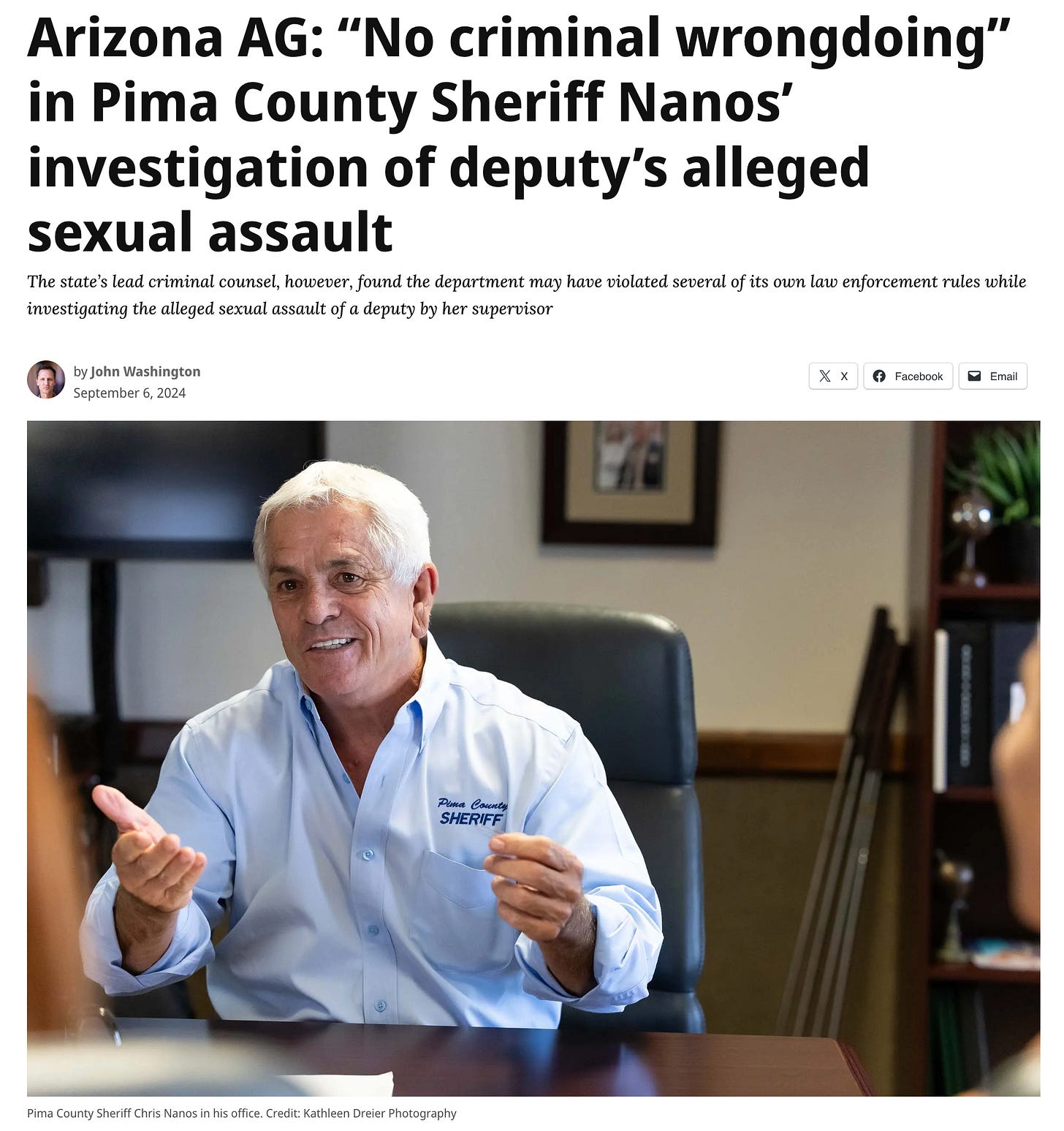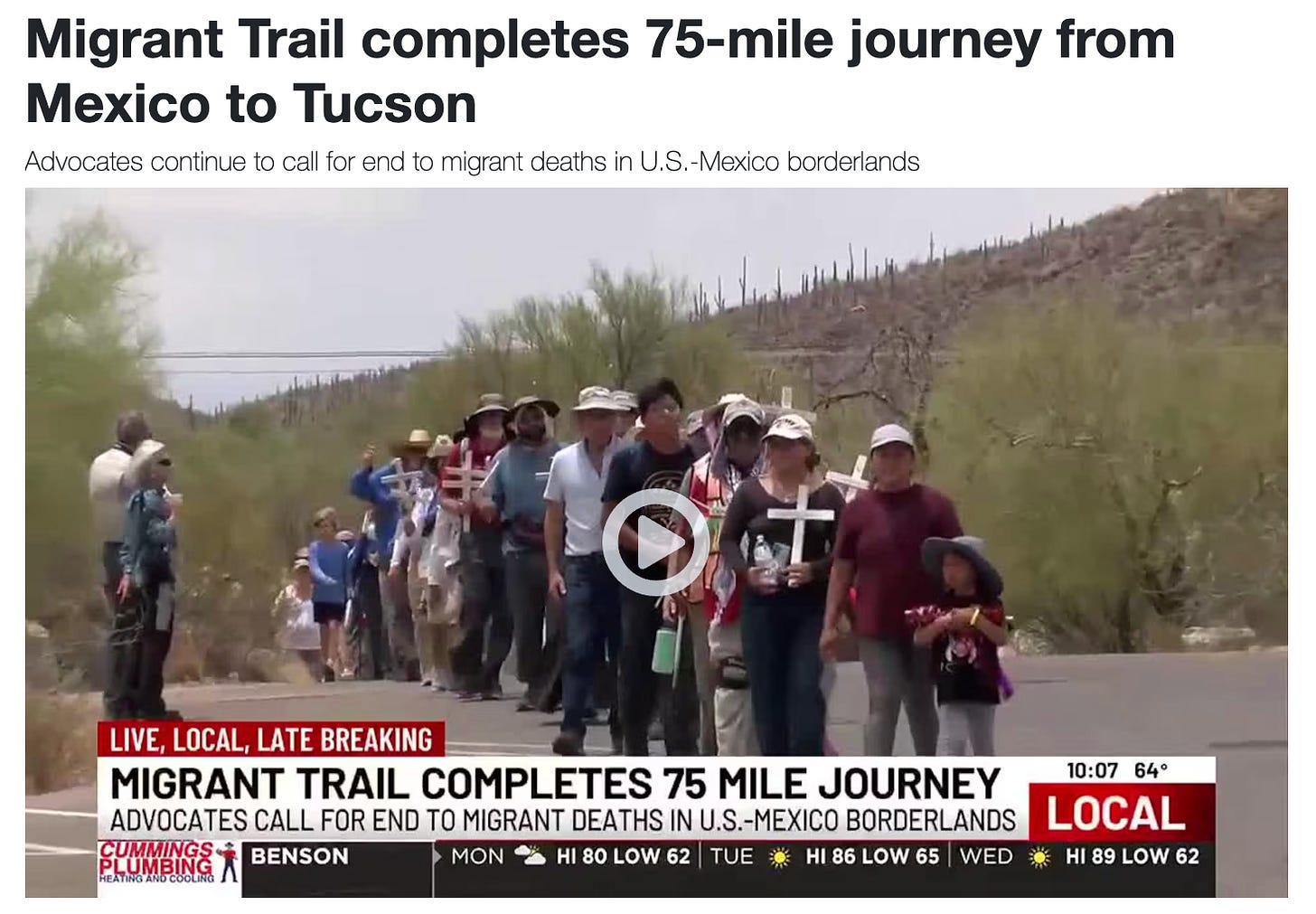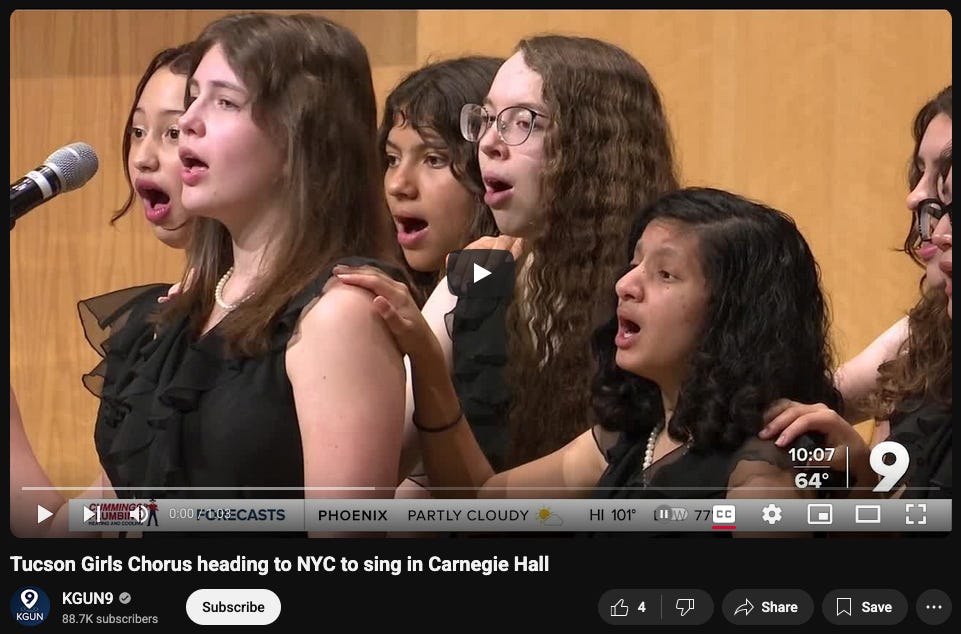County talks housing
Heinz’s affordable housing plan comes back … Brazen cowards … And PAG can’t keep an attorney.
A few million here, a few million there — and soon we're talking about real money.
The Pima County Board of Supervisors is in for another marathon session as it moves closer to finalizing next year’s budget. Reaching agreement — or at least securing a majority — often requires some creative budgetary maneuvering.
Like what? Glad you asked.
The Board will consider selling five homes, with a possible sixth to be sold separately. These properties were originally acquired using the county’s Department of Transportation (DOT) funds as part of road alignment projects.
The county hopes to sell them at appraised value — around $2.5 million — and return the proceeds to the DOT’s general budget.
At the same time, the Board will revisit Supervisor Matt Heinz’s affordable housing proposal.
The plan would create a dedicated revenue stream by increasing property taxes — though not until a future fiscal year. Over the course of a decade, Heinz’s office estimates the proposal could generate $225 million for affordable housing initiatives in the county.
Currently, Pima County allocates about $5 million annually to affordable housing. Private developers have leveraged this investment at a ratio of more than 38-to-1 — translating to roughly $419 million in new development tied to just $11 million in county funding so far allocated.
Heinz’s proposal has garnered some support on the Board, but a formal vote has been repeatedly delayed. This week, the proposal is being linked to broader policy goals: closing the affordable housing gap, addressing housing insecurity and preventing the escalation of homelessness.
While there are several reasons these two items — the home sales and the housing proposal — may not be directly related, it seems like there might be an opportunity to convert the unused homes.
More details are expected tomorrow, including why the county is opting to sell the homes instead of renting them out.
In other business, Heinz is also asking Arizona Attorney General Kris Mayes to review an internal affairs investigation by the Pima County Sheriff’s Department (PCSD).
The case involves a sergeant and a deputy and stems from a December 2022 incident, which ultimately led to a one-year prison sentence for the sergeant on charges of attempted sexual assault and sexual abuse.
Mayes previously investigated the situation and found no criminal wrongdoing by Sheriff Chris Nanos, but left open the possibility of revisiting the issue once PCSD completed its own review — which Heinz now wants to pursue further.
Also on the agenda, Supervisor Jennifer Allen is urging her colleagues to formally oppose the militarization of the U.S.–Mexico border.
Her proposed resolution objects to the transfer of Roosevelt Reservation lands (the 60-foot-wide strip that runs alongside the border), opposes the $46.5 billion earmarked in the House Reconciliation budget for additional border wall, and directs the county administrator to take steps to communicate Pima County’s opposition.
Lastly, the Supervisors will vote on a plan to exit a lease on an office space on Valencia Road, originally intended for the Recorder’s Office.
Citing “significant and unanticipated pauses in, and changes to, federal funding, fiscal challenges, and the current economic environment,” the County seeks to save nearly $1 million by ending the five-year contract — signed just last December — early. The termination will cost the County $200,000.
The County plans to move both the Recorder’s Office on the southside and the Elections Department to the county-owned 1150 W. Drexel Road, previously used for housing asylum seekers. A memo says some renovations to the empty building are necessary before the departments can be moved.
Catch Joe live-blogging today’s meeting on Bluesky. Help support real-time coverage of the Pima County Board of Supervisors and the Tucson City Council by becoming a paid subscriber today.
You can never have enough water here in the Sonoran Desert.
The Tucson City Council will soon discuss buying water from the U.S. Bureau of Reclamation at an upcoming auction. Details on the executive session item are scant, but it's listed as the purchase of “renewable water supplies.”
This is likely “paper water” — water rights granted in legal documents, even if the city cannot physically pump it.
The seven Democrats on the Council will provide direction after meeting with the city attorney, but it's a good bet the city will be a bidder — these opportunities don’t come around often.
Other items on the agenda:
Raises for city employees and settling a long-standing dispute with unionized employees over “release time,” which would pay workers for some union activities, including representing the union in contract negotiations.
Finalizing “Plan Tucson 2025,” a long-range city plan that sets community goals before it goes to voters this fall.
Enacting “Stage 2” fire restrictions on city-owned properties, which would ban fireworks, grilling in city parks, and construction activities like welding.1
The Council will also make some final tweaks to the proposed $2.4 billion city budget. While this budget sets tax rates and funding levels for departments, we expect some last-minute tinkering — as groups continue to push for fare-free transit, more police officers, increased resources for the unhoused, and a plea from hotel owners to avoid raising the overnight surcharge.
Weapons of the weak: As ICE gets more brazen with immigration raids (and the agents themselves get less brazen about showing their faces), immigrant rights activists and lawyers are urging immigrants to oppose the dismissal of their cases, Arizona Daily Star columnist Tim Steller writes. It’s one of the only ways they can avoid getting quickly deported. Lately, ICE agents have been waiting outside immigration courtrooms to pick up anyone whose case was dismissed.
“These are grotesque displays of bullying and cowardice. It’s no wonder many of the agents wear masks — imagine if their mothers saw them,” Steller wrote. “But it would be more respectable if they quit rather than run roughshod over weak people to make the daily numbers. There are plenty of law-enforcement jobs available.”
Uncertain futures: Chinese students across the country, including more than 600 at the University of Arizona and 2,600 at Arizona State University, are trying to figure out what to do now that Secretary of State Marco Rubio said some of their visas would be revoked, the Associated Press reported. A spokesperson for China’s Foreign Ministry said the new policy was “politicized and discriminatory” and “lays bare the U.S. lie that it upholds so-called freedom and openness.”
Sticking with Trump: Speaking at a debate last week, the Republican candidates in Congressional District 7 tried to align themselves as much as possible with President Donald Trump’s agenda, Capitol Media Services’ Howard Fischer reports. Daniel Butierez and Jorge Rivas (who was granted political asylum in the U.S. in the 1980s) both support Trump’s mass deportation program, as well as cuts to Medicaid included in the recent federal budget bill.
Median matters: Tucson’s new ordinance that targets panhandlers on medians took effect in April, and in just one day they issued 67 median-related citations, KGUN’s Athena Kehoe reports. Kehoe spoke with a woman who has been unsheltered for 15 years and used to panhandle, before going through a program at Gospel Rescue Mission.
“Instead of committing crime I would panhandle for the money," the woman said. "A lot of times people would give you the food. The money was a perk that other crimes wouldn’t have to be committed.”
On the hook for homelessness: A lawsuit filed by residents of the Hedrick Acres neighborhood got new life after Arizona’s Court of Appeals overruled a Pima County judge and said the lawsuit could continue, KOLD’s Raya Torres reported. The residents claim the city didn’t do enough to deter homeless activity in the Navajo Wash Park. City officials said they cleaned up the park several times, but unsheltered people returned every time.
There is another hiccup in the saga over at the Pima Association of Governments.
PAG is back to searching for an attorney — news of an appointment for a temporary lawyer with PAG was short-lived as a Phoenix-based attorney declined to take the position last week.
This is the second attorney to give up on PAG in the last two months. In April, PAG’s attorney, Thomas Benavidez, quit.
Some boardmembers have argued they need an attorney in order to move forward with a plan to fire the board's much-maligned executive director, Farhad Moghimi.
We will find out on Thursday, when the board discusses Moghimi’s performance and possible appointment of an interim executive director.
The state and county have already declared a “fire emergency” and passed similar restrictions. In its staff report, the Tucson Fire Department notes an 89% increase in brush fires compared to last year.








